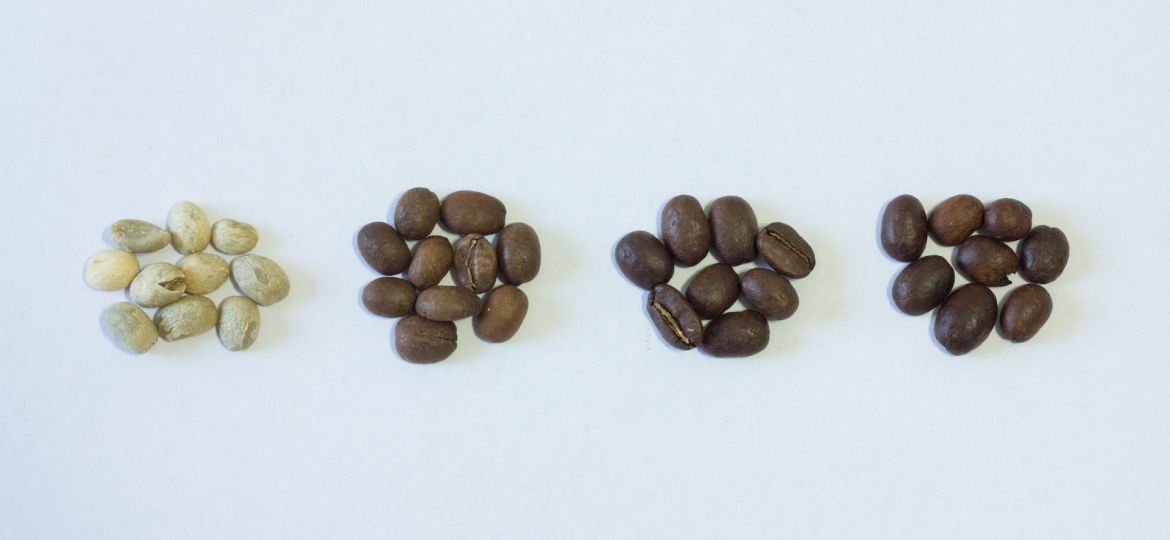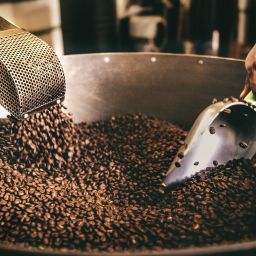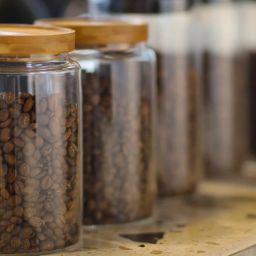
Coffee shops around the world are defined by the quality of their coffee, which, in turn, is all about the beans. The heart and soul of every cup of coffee are the beans themselves, making their selection a crucial aspect of any coffee shop’s business. But have you ever wondered where these aromatic, flavor-packed beans come from? It’s not just about picking any bean off the shelf; there’s a whole journey behind each bean that ends up in your favorite coffee shop.
The Journey of Coffee Beans
Coffee beans have quite the globetrotting life before they reach your cup. Here’s a glimpse into their journey:
- Origins: Coffee beans primarily come from a region known as the “Bean Belt.” This includes countries like Brazil, Vietnam, Colombia, Indonesia, and Ethiopia. Each of these places offers unique climates and soils, contributing to the beans’ distinct flavors and aromas.
- Climates: The best coffee beans thrive in tropical climates along the equator. These regions have the perfect combination of rainfall, sunshine, and temperature, creating ideal conditions for coffee plants.
- Importing to the West: Once harvested and processed, these beans begin their journey to coffee shops around the world. For coffee shops in the US, Europe, and Australia, this means importing beans from these far-off lands. It’s a complex process involving exporters, importers, and various regulations to ensure quality and sustainability.
Understanding the journey of coffee beans is just the beginning. The real magic happens when these beans are selected, roasted, and brewed, transforming them into the delightful beverage we all love.
Wholesale Coffee Roasters
When it comes to getting their hands on quality coffee beans, many coffee shops turn to wholesale coffee roasters. These roasters are like the unsung heroes of the coffee world, ensuring that your local café is stocked with aromatic, flavorful beans.
- The Middlemen: Wholesale roasters source beans from around the globe, roast them to perfection, and then supply them to coffee shops. This process takes a load off the café owners, who might not have the time or resources to roast beans themselves.
- Consistency and Quality: One of the biggest advantages of using a wholesale roaster is consistency in quality. These roasters have mastered the art of roasting, ensuring that each batch of beans is as good as the last. This consistency is key in keeping the coffee lovers coming back for more.
- Ease of Business: For a coffee shop, working with a wholesale roaster means less hassle. They don’t need to worry about the nitty-gritty of sourcing beans, dealing with importers, or the science of roasting. It’s all about focusing on what they do best – brewing and serving great coffee.
Coffee Shops Roasting Their Beans
Now, let’s talk about coffee shops that roast their own beans. It’s like a chef growing their own herbs – there’s a sense of pride and ownership in the process.
- Unique Flavor Profiles: By roasting in-house, coffee shops can create unique blends and flavors. This customization can set a café apart from the competition, offering a unique experience to customers.
- Direct Control: Roasting beans in-house gives coffee shops direct control over the quality and flavor of their coffee. It’s all about having the freedom to experiment and find that perfect roast profile.
However, roasting beans is not without its challenges:
- Space and Equipment: Roasting requires space and specialized equipment. Coffee shops need to consider if they have the room and budget for a roaster and if they can comply with local health and safety regulations.
- Skill and Time: Roasting is an art and a science. It requires skill, practice, and a lot of time to perfect. Coffee shops need to weigh if they have the resources to dedicate to this process.
For coffee shops considering roasting their own beans, it’s important to weigh these benefits and challenges carefully. It’s a big step, but for those who take it, it can be incredibly rewarding.
Whether a coffee shop chooses to work with a wholesale roaster or roast their own beans, the goal remains the same – to serve a memorable cup of coffee that keeps customers coming back.
Green Coffee Suppliers
When we talk about coffee before it hits the roaster, we’re talking about green coffee. This is where green coffee suppliers, or brokers, come into play in the big coffee picture.
- The Connectors: Green coffee suppliers are the crucial link between coffee farmers and coffee shops or roasters. They handle the sourcing, purchasing, and logistics of getting unroasted coffee beans from farms to roasters.
- Quality and Variety: These suppliers often have a wide range of beans from various regions, offering a diversity of flavors and profiles. For coffee shops, this means access to a world of coffee with just one contact.
- Building Relationships: Working with green coffee suppliers can be a game-changer for coffee shops, especially those looking to roast their own beans. These suppliers can provide insights into different beans, their origins, and what makes each one special.
But how does a coffee shop start working with a green coffee supplier? It’s all about research and building relationships. Coffee shops need to find a supplier whose offerings align with their vision and quality standards. Once a relationship is established, it opens up a whole new world of coffee possibilities.
Direct Trade
Direct trade in the coffee world is like cutting out the middleman. It’s a sourcing method where coffee roasters buy directly from the farmers.
- Closer Relationships: One of the biggest benefits of direct trade is the closer relationship between the farmer and the roaster. This often leads to better quality coffee and more sustainable practices.
- Fair Pricing: Without intermediaries, farmers often get a better deal for their coffee. This can mean more profits for them and, for roasters, a chance to get high-quality beans at a more reasonable price.
However, direct trade isn’t without its challenges:
- Logistics and Relationships: Establishing and maintaining direct trade relationships requires effort. Roasters often need to travel to coffee farms, which can be costly and time-consuming.
- Language and Cultural Barriers: Working directly with farmers means navigating language and cultural differences, which can be challenging but also rewarding.
For coffee shops interested in exploring direct trade, it’s important to understand these dynamics. Establishing direct trade relationships can be a significant step towards quality and sustainability, but it requires commitment and resources.
Whether it’s working with green coffee suppliers or establishing direct trade relationships, the way a coffee shop sources its beans can have a big impact on the quality of its coffee and its overall business model. Each method has its own set of benefits and challenges, and it’s up to each coffee shop to decide what works best for them.
Choosing the Right Coffee Roaster
Selecting the right coffee roaster is like finding a good partner – it’s crucial for the success of your coffee shop. Here’s what you need to consider:
- Quality: This is non-negotiable. The quality of the beans will define the taste of your coffee. Look for roasters known for their high-quality beans.
- Consistency: Your customers expect the same great taste with every cup. Consistency in bean quality is key to meeting these expectations.
- Taste Profile: Different roasters have different roasting styles and bean selections. Choose one that aligns with the taste profile you want to offer.
- Price: While quality is important, you also need to consider cost. Find a roaster that offers a good balance between quality and price.
When choosing a roaster, don’t just go by what you hear. Try their coffee. Visit them, taste their range, and see if it fits your café’s vibe and customer preferences. It’s also a good idea to understand their sourcing practices – are they ethical and sustainable? This can be a great selling point for your shop.
Steps to Buying Wholesale Coffee
So, you’ve decided to buy wholesale coffee. Here’s what you need to know to get started:
- Legal Setup: Ensure your business is legally set up. This means having your business structure and licenses in place.
- Reseller’s License: You’ll likely need a reseller’s license to buy coffee wholesale. This allows you to purchase beans without paying sales tax.
- Finding a Roaster: Research and find a wholesale roaster that aligns with your needs in terms of quality, price, and taste profile.
- Building Relationships: Establishing a good relationship with your roaster is crucial. They can be a wealth of knowledge and support as you grow your business.
Remember, when you’re starting out, every decision you make, from the legal setup to the coffee you serve, shapes your coffee shop’s identity. Take your time to understand the process and make informed choices.
Choosing the right coffee roaster and understanding the steps to buy wholesale coffee are crucial elements in the success of your coffee shop. It’s about balancing quality, taste, and cost, while also ensuring you’re legally and logistically set up for success.
FAQs
Let’s tackle some common questions about coffee bean sourcing:
- Where do most coffee shops get their beans?
- Many coffee shops source their beans from wholesale roasters, which offer a variety of beans with consistent quality. Others may roast their own beans or even engage in direct trade with coffee farmers.
- What should I look for in a coffee bean supplier?
- Focus on quality, consistency, and a flavor profile that matches your coffee shop’s theme. Also, consider the supplier’s ethical and sustainable sourcing practices.
- Is it better to roast your own beans or buy from a roaster?
- It depends on your resources and expertise. Roasting in-house gives you control over flavor and uniqueness, but it requires space, equipment, and skill. Buying from a roaster offers convenience and consistency.
Read more about Best Coffee Syrups.
Conclusion
In wrapping up, we’ve journeyed through the intricate world of coffee bean sourcing. From understanding the role of wholesale roasters and green coffee suppliers to exploring the nuances of direct trade and in-house roasting, it’s clear that the path to the perfect cup of coffee is as complex as it is fascinating.
Here are the key takeaways:
- The quality and origin of coffee beans are crucial for any coffee shop.
- Options for sourcing include wholesale roasters, green coffee suppliers, and direct trade.
- Each sourcing method has its own set of benefits and challenges.
- Legal and logistical considerations are important when setting up your coffee sourcing.
Ultimately, how a coffee shop sources its beans can significantly impact its flavor profile, customer satisfaction, and overall business success. Whether it’s partnering with the right roaster or taking the bold step of roasting in-house, each choice shapes the unique coffee experience a shop offers.
At the heart of every great coffee shop is a deep understanding and appreciation of the beans that go into every brew. So, take the time to explore, taste, and learn – your perfect coffee bean source is out there waiting for you.









